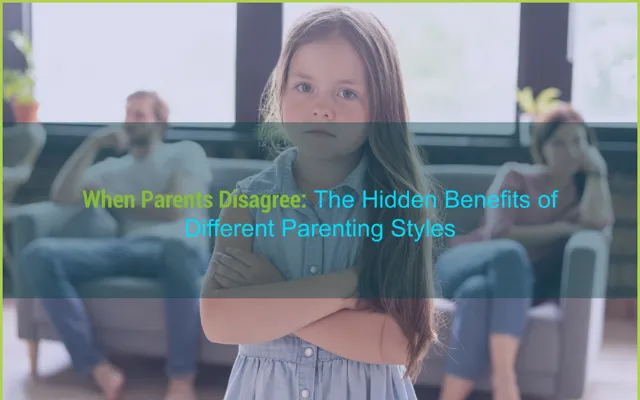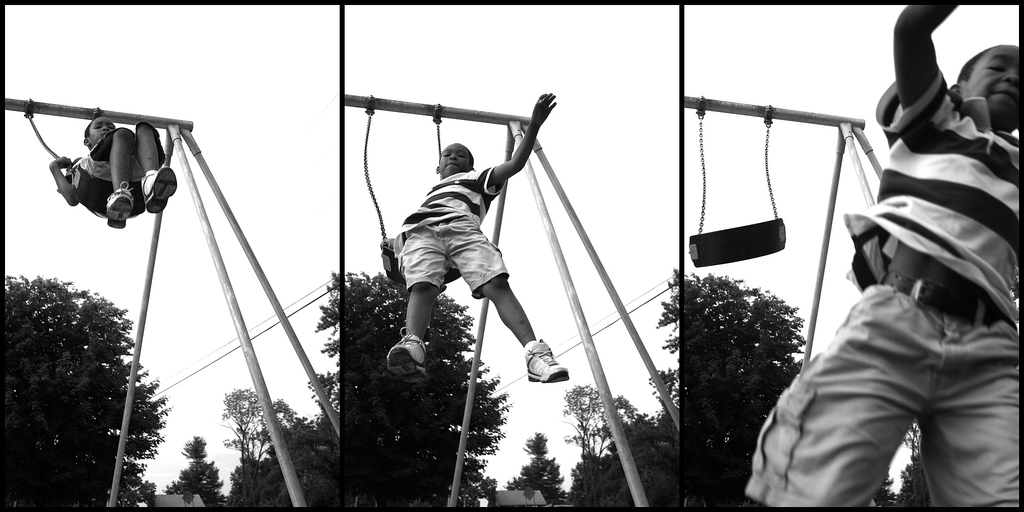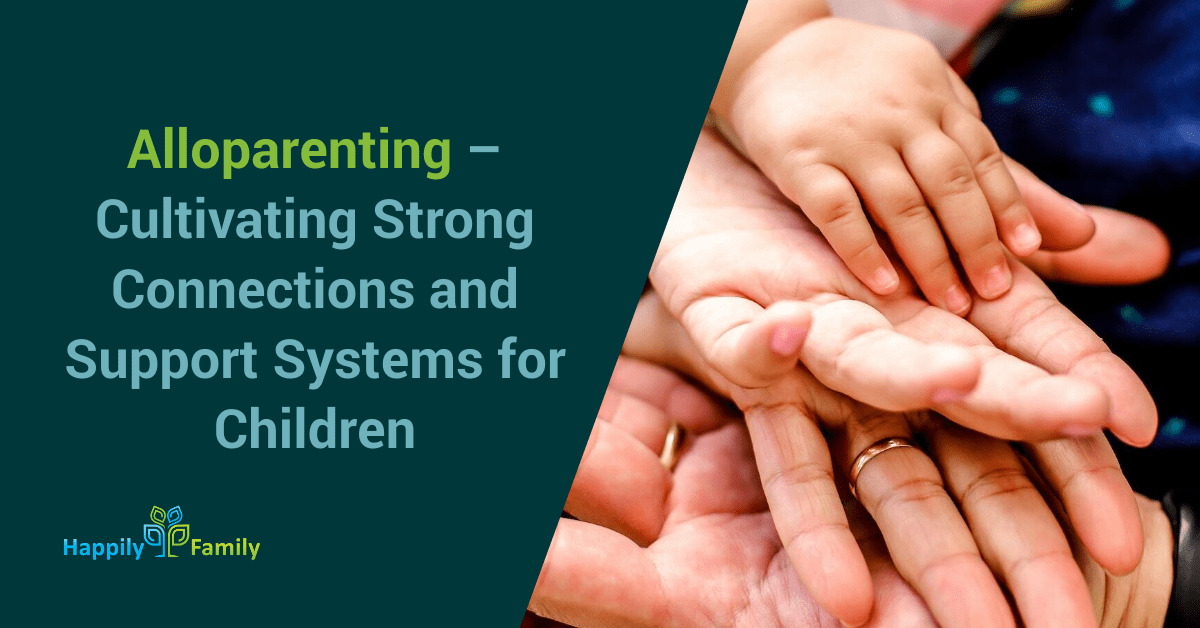Do you ever feel like you and your partner (or spouse) have opposite approaches when it comes to the way you parent?
Like the way you handle things like schedules, expectations, and kids’ emotions are totally opposite of each other?
Let’s say your child comes home from a rough day at school. They don’t want to follow their normal routine.
You notice your child’s mood and see they’re not acting like their usual self. You understand that sometimes we all need a little space to decompress and that pushing them to follow their routine might not be the best approach today. You’re okay with letting them take it easy, they’ll do things when they’re ready.
But your spouse wants your child to “toughen up” and still do all of the things he is normally expected to do. “You can do hard things.” And when you do difficult things it builds resilience and prepares kids for the “real world”.
The tension between your flexible, compassionate approach and your partner’s more structured “stick to the routine” mindset leaves you both wondering: “Which parenting style is right?”
A Powerful Mindset Shift for Parents
We had the opportunity to talk with Dr. Ann-Louise Lockhart about what to do when you and your partner have different parenting styles and what she said could change the way you think about being “opposites.”
What if your opposing parenting styles aren’t actually a problem, but a strength? What if these differences aren't something to fix, but something to embrace?
Finding Balance in Parenting: Softness AND Structure
Dr. Lockhart explained that it doesn’t have to be either/or when it comes to parenting styles–it can be “and.” It’s okay if you and your partner approach things differently. In fact, it’s actually a good thing!
Your different styles can complement each other, bringing balance to the way you raise your child.
While one of you offers structure through routine and consistency, the other provides flexibility and connection through understanding and validation.
In the end, both approaches teach your child invaluable skills that will help them grow into resilient, well-rounded adults.
The Power of Complementary Parenting
Because you and your partner approach things differently, you both bring unique strengths and play different roles in guiding your child through challenges.
When one parent provides emotional validation, understanding, and comfort and the other is focused on building problem-solving skills and resilience–the result is a child who feels both supported and prepared for life’s challenges.
The magic happens when both parenting styles come together, creating a balanced environment where your child can thrive.
You give your child the best of both worlds: a safe and supportive place to express their feelings AND accountability through routine and structure. Self-awareness AND grit.
One of you provides a soft place to land, while the other equips them with the tools to stand up again.
The Role of Generational Patterns: Understanding the Cycle
We all come into parenting with beliefs and ways of doing things that stem from the messages we received in our childhood.
Things like: “kids should do what they’re told”, “adults are always right”, and “big boys/girls don’t cry…”
Maybe you grew up in a home where it was okay to express your feelings or say “no” while your partner was raised by parents with a “you can push through it” approach and a “prepare kids for the real world” mindset.
There also might be different cultural beliefs about family dynamics that come into play.
Either way, we have a choice. We don’t have to repeat the parenting patterns that we were raised especially if they don’t feel right to us now.
We can take what we liked about the way we were raised and leave the rest. We can appreciate the “things that worked” about our own upbringing and use the “things that didn’t work” as lessons on how to do things differently with our own kids.
Dr. Lockhart stresses the importance of becoming aware of those instilled beliefs about how you “should” parent your kids from your childhood and how those beliefs influence you–for better or worse–in the present.
Through awareness, we can understand both ourselves and our partner on a deeper level and grow together as we parent in a more mindful way.
The Trust Factor in Co-Parenting
To make this balancing system work, the most important thing you can do is create a foundation of trust in each other's judgment as parents and feel confident that your intentions are aligned.
It’s not about agreeing on everything or always using the same methods—it’s about knowing that you're both working towards the same goal and have the same values, even if you approach it in different ways.
This understanding will allow you to support and strengthen one another’s approach instead of competing or undermining when you disagree.
Building a United Front Through Difference
The message I want to leave you with is this: the goal isn’t to parent in exactly the same way as our partner—it’s to parent in a way that complements each other.
It’s to acknowledge and support each other’s different styles while staying rooted in the same core values. It’s remembering that you are on the same team and share the same desired outcome, even if your methods of getting there vary.
After watching the video, write me a comment at the bottom and let me know if you relate to this topic!
When do you and your partner experience the biggest differences in your parenting approach, and how do you handle it?
I’ll answer some of the frequently asked questions about this topic down below, but feel free to ask any others in the comments section and I’ll do my best to answer.
Frequently Asked Questions
Q: What if you and your partner/spouse disagree on parenting styles?
If you and your partner find that your parenting styles are worlds apart, start by focusing on your shared values. What do you both want for your child in the long run? Focus on the bigger picture and work to find a compromise that respects both of your approaches while staying consistent with your core values.
Q: How can single parents provide both nurturing and structure?
Single parents may not have a co-parent to rely on, but they can still tap into both sides of the parenting spectrum. It may mean balancing the nurturing and the structure/skill building within yourself. Or if you can–lean on other trusted supports in your child’s life (teachers, family members, friends…) who can offer different perspectives to give your child a wider range of support.
Q: How do you maintain consistency while having different parenting styles?
Consistency can come from agreeing on a few fundamental values—things like kindness, resiliency, and responsibility. Once you’ve agreed on your core values, give each other the freedom to parent your kids in ways that feel authentic to each of you. As much as you can, trust your partner and see that their approach also brings value and balance to your child.
Resources:
Get more info about Dr. Ann-Louise Lockhart's work at A New Day Pediatric Psychology.







